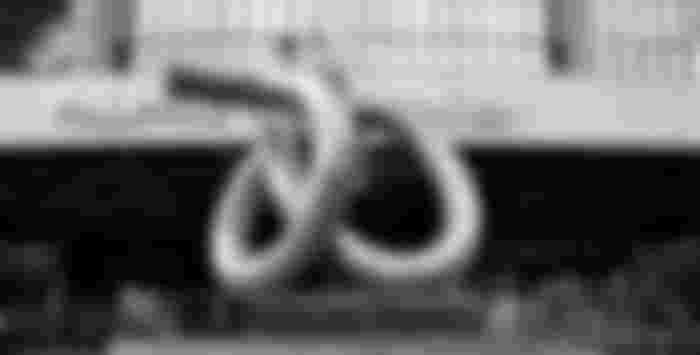02/14 What Happen Yesterday?

The 2005 Valentine's Day Bombings took place
February 14, 2005

Until the day full of love is still not missed by the slaves of terrorism. In 2005, a bomb exploded at a bus terminal near Gaisano Mall in General Santos City, past 6:30 p.m. Just an hour later, a similar explosion occurred in the city of Makati in Metro Manila, on a bus just below Ayala Metro Rail Transit station. There was also an explosion near Glorietta Mall, at the Intercontinental Hotel where President Gloria Macapagal-Arroyo was having dinner with her family. The Abu Sayyaf terrorist group claimed to have launched the Valentine's Day bombings, and they also took part in the bombing of Superferry 14 in February last year.
Nine to 12 people were killed in a series of Abu Sayyaf bombings, and 144 people were injured.
The following month, authorities arrested seven Abu Sayyaf members, including their leader Khadaffy Janjalani. With the help of surrendered member Gappal Bannah Asani, three members of the Abu Sayyaf were convicted by the Makati Regional Trial Court of terrorism and sentenced to life imprisonment, and confirmed by the Supreme Court.
President Arroyo's presidential spokesperson called the bombings a "Valentine's day gift" to the president.
The Philippine Heart Center was inaugurated
February 14, 1975

On Valentine's Day, the good news for the heart health of Filipinos was the opening of the Philippine Heart Center in 1975. It is a government owned and controlled corporation (GOCC) organized under Presidential Decree no. 673 signed by President Ferdinand Marcos. The PHC building or the former Philippine Heart Center for Asia was inaugurated, on the current East Avenue, Quezon City, where 50% of the hospital's total construction fund amounting to USD 50 million comes from national funds. The first Director of the hospital, Avelino P. Aventura, is a cardiovascular specialist who performed the first heart and renal implant in the Philippines. Qmentum International Gold Accreditation awarded PHC in August 2014 for the "unique service" of such a heart health clinic.
PHC specializes in heart conditions, which can accommodate 14,000 patients per year, and operate on 3,000 patients. PHC also serves as training grounds, conducting training programs for medical professionals. This is said to be the first and busiest heart center in our country. Joel M. Abanilla is the current Director of PHC.
Juan Ponce Enrile was born
February 14, 1924

A columnist is joking; "Whoever you are, we will all still be ahead of Juan Ponce Enrile". At the age of 97, he can be considered the "Grand Old Man" of Philippine politics. He was born today in 1924 in the town of Gonzaga, Cagayan and is said to be the son of a Spanish mestizo, politician and lawyer Alfonso Ponce Enrile, the son of a fisherman Petra Furangganan. His second uncle was Filipino propagandist and reformist Mariano Ponce. Enrile was a young man when he met his father and he took him to Manila to study there.
From being a young student Enrile fought as a guerrilla during the Japanese occupation. After the war he continued his education and graduated as cum laude at Ateneo de Manila University in 1949, and then studied Law at the University of the Philippines where he graduated again as cum laude. In 1953 he became the 11th placer in the Bar examination, so he was given the privilege of becoming a scholar at Harvard Law College, where he obtained a Master of Laws specializing in international tax law.
He was a law professor at Far Easten University, and worked for his father's law firm before becoming the personal legal officer of then-Senate President Ferdinand Marcos. When Marcos became President of the Philippines in 1965, Enrile was included in his cabinet, when he was appointed undersecretary of the Department of Finance from 1966 to 1968. He served as Commissioner in the Bureau of Customs and was Justice Secretary from 1968 to 1971.
His appointment as Defense Secretary back in 1972 extended Enrile's political power to the Marcos government. Marcos allegedly used his alleged ambush on September 22 to justify his declaration of Martial Law in the country. As Defense Secretary, Enrile served as Marcos' right hand to enforce Martial Law throughout the country, as he was in-charge of the army at that time. Some critics of Martial Law view Enrile as Marcos' "protégé." Not only that, Enrile became Marcos crony, because he also owned a large logging company in the Philippines that was protected by the Marcos government. Marcos also instructed him to lead the Philippine Coconut Authority, and with Danding Cojuangco in managing the controversial Coco Levy Fund, which instead of using the copra tariff fund for the development of the copra industry was used for programs by Imelda Marcos, and President Marcos' campaign in 1983.
In 1986, Enrile took over as Marcos' defense secretary and led the EDSA Revolution, which ousted Marcos. But when Corazon Aquino became president, Enrile led several coups with the then Lt. Col. Gregorio Honasan, and was nicknamed Cory Aquino's national star and opportunist. In 1992 he became the Congressman of his district in Cagayan and was a Senator from 1995 to 2001. He tried to run for President in 1998 but lost to Joseph Estrada. He was one of those who voted not to open the second envelope in the impeachment against Estrada, who rallied in EDSA II. In May 2001, he was one of the leaders in the attack on the Malacanang Palace but the siege of the palace failed. This was the reason for his defeat in running for Senator in 2001. In 2004 he returned to the Senate, and was re-elected in 2010, the oldest senator in the Philippines. He led the impeachment of Chief Justice Renato Corona as Senate President in 2012, but he himself was also involved in the issue of corruption when the Pork Barrel Scam erupted, where he was among those who received kickbacks from ghost projects and bogus NGOs. by Janet Lim Napoles in 2014. He was imprisoned along with Senator Ramon Revilla Jr., and Jinggoy Estrada, but eventually three senators were also released.
Enrile enacted and passed many laws as a Senate President, such as the CARP Extension, Anti-Torture Act, Expanded Senior Citizens Act, Anti-Child Pornography Act, National Heritage Conservation Act, Real Estate Investment Act.
Copyright © 2021 MidnightWriter. All Rights Reserved


